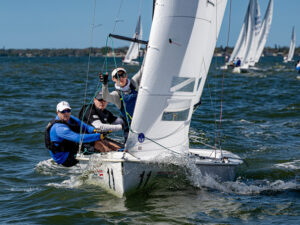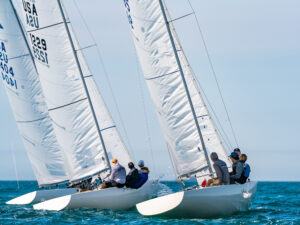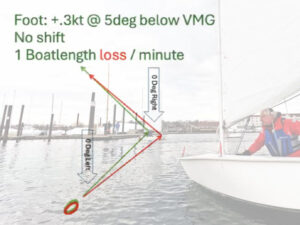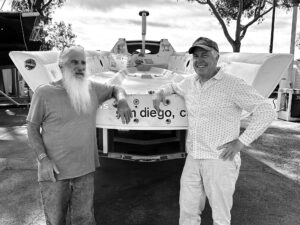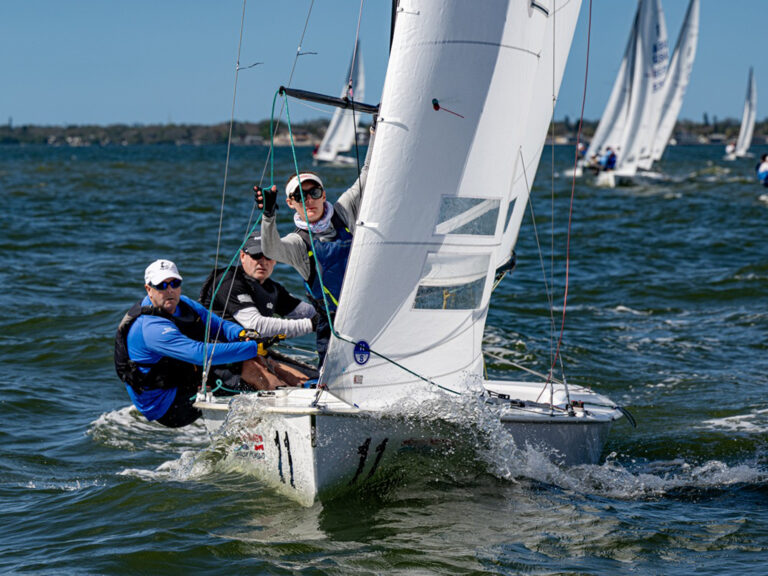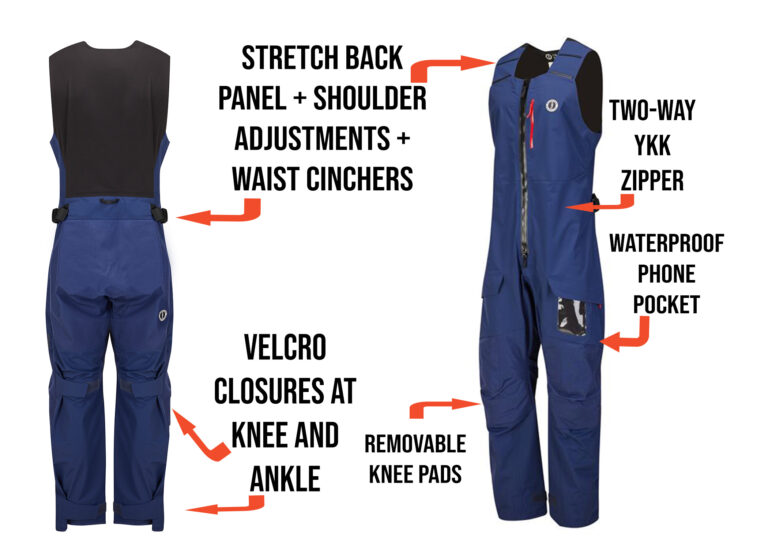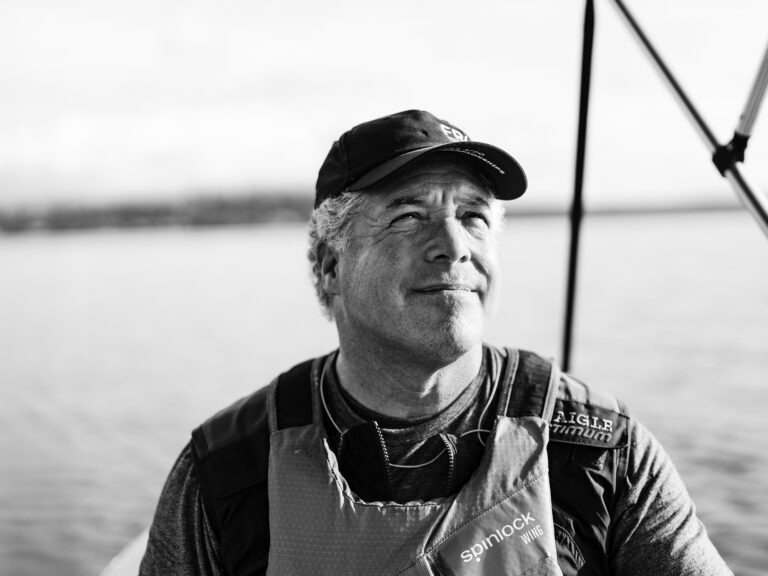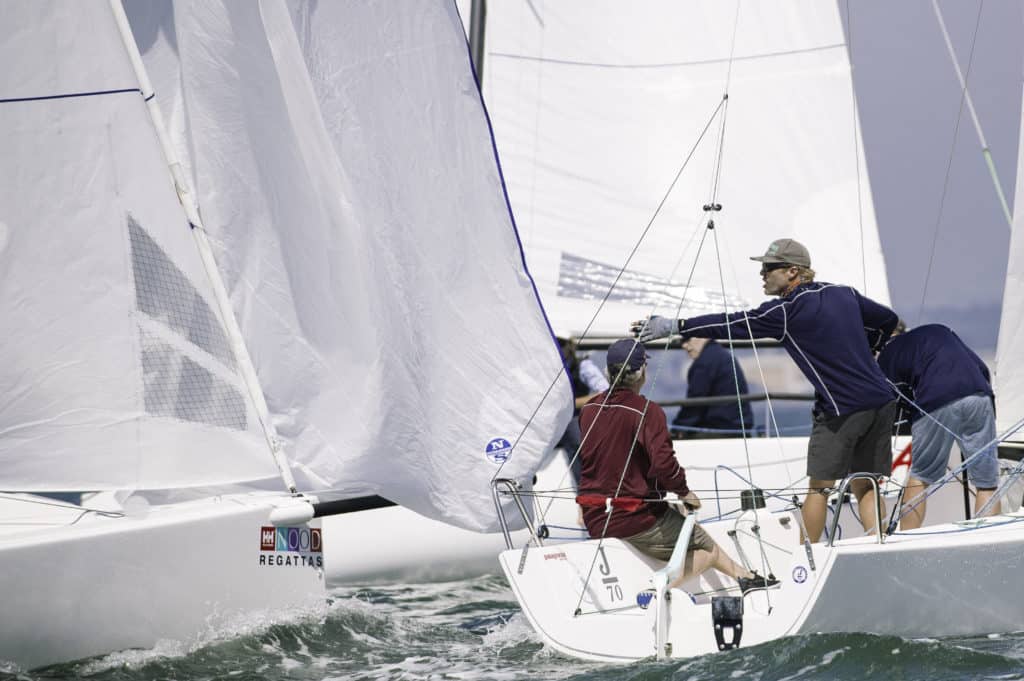
It was a pursuit-start race and the first event for our newly purchased Alerion 28. We had taken ownership of the boat the night before, so we were arguably rushing things, but it was just a low-key random-leg event with more than 130 boats. What could possibly go wrong?
The race attracted a wide spectrum of competitors and boat types. Its simplicity is its appeal. The course is set regardless of wind direction, and it features an uncrowded starting line for most entrants. Ratings are assigned if needed, and there’s a party for everyone afterward. There are few hurdles to ensure maximum fun, which makes it perfect for encouraging participation.
We went off as the 10th starter, in a drifter, but with the wind building soon after, the fleet quickly caught up. When the second leg became a run, we could see the next turning mark would be jam-packed. I anticipated our pleasure race was about to get unpleasant. It’s one thing to have a crowded rounding among experienced teams, but we were dealing with something much more unpredictable.
Doing our best to protect our new prized possession, we negotiated the approach, found an inside lane to the mark, and felt safe with only seconds before the turn. That’s when we glanced over our shoulder to see a 43-foot boat aiming to round inside of us. All they saw was the mark and the turn. All we saw was our glimmering new hull about to get bulldozed.
What followed was regrettable. I shouted, telling them to spin out before the mark. They told me to protest. Protest? We had no flag, plus this wasn’t a protestable situation. It was a hit-and-run. I grabbed their toe rail to defend my gelcoat, yelling words like “Corinthian” to explain what they were not. It was futile. We were roadkill as they carried on past.
Fortunately, the only damage was to my disposition. In retrospect, we should have seen the bigger boat’s ill-thought intent earlier and given them the room they didn’t deserve. They were going to pass us regardless, and despite our rights, it would have been smarter to maintain my mood. To paraphrase George Carlin, it’s best not to argue with certain people because they will only bring you down to their level and beat you with experience.
The situation does shed light on a conundrum in our sport, however. We often race among sailors of varying skills. The most experienced of them understand the rules and tactics and how to leverage every situation. Newer sailors often don’t know what they don’t know and find frustration at moments.
Others, like my friend at the aforementioned mark rounding, have been sailing long enough to know better but don’t. Bad things can happen when we all mix, and when it does, how do we all get off the water at the end of the day feeling enthused about our chosen recreation?
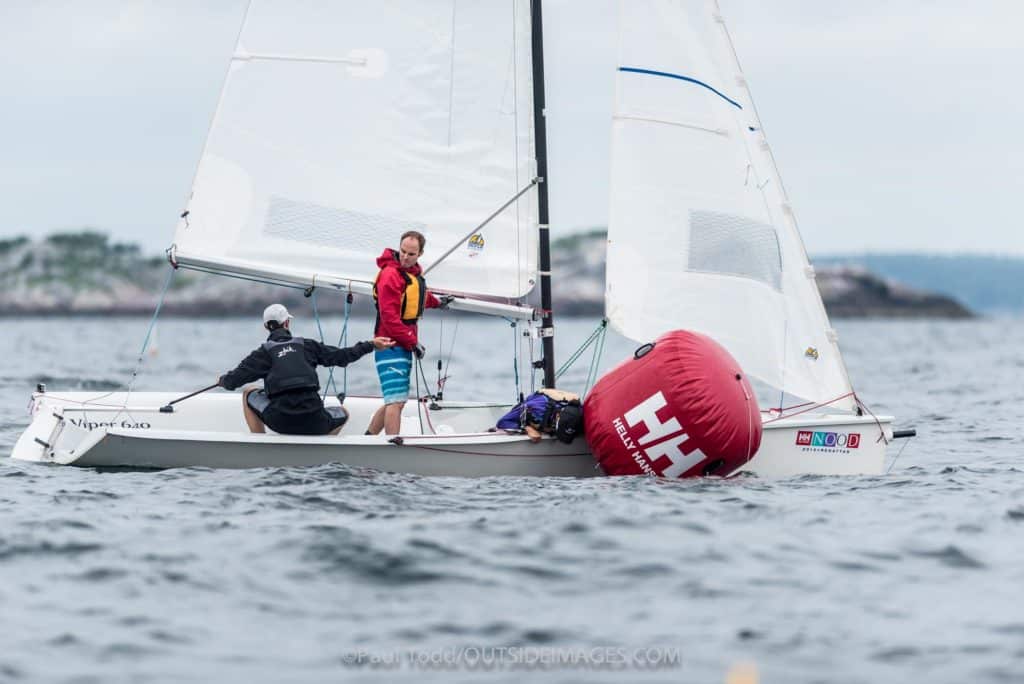
A panel discussion I once co-hosted tackled the topic of participation, to which rock-star Terry Hutchinson replied that he preferred quality over quantity. Of course he does, I thought to myself. When one is as good as he is, it’s perfectly sensible to not want to be surrounded by boats that could unfairly impact performance. You don’t want someone barging down the starting line or creating a pileup at a mark. None of us wants that.
But conflict does occur, and how we handle it impacts the moment and everything that follows. This is where the wisdom of the esteemed Paul Elvström comes to mind. As brilliant as Elvström was with his understanding of the rules, and as dominant he was as a competitor, he was an equally masterful sportsman. He put friendships above all accolades, and saw the conundrum in the sport. It’s one thing to be competing for Olympics medals, but what about the other end of the spectrum? For our sport to increase participation and be enjoyable, Elvström counseled, we must at times be tolerant of sailors of all skill levels. Those who did know the rules needed to be cautious in intimidating those who didn’t know them.
If I’d handled myself more appropriately at that turning mark, the outcome would have been measurably better for both boats. I didn’t know the other skipper, but I did see him later at the after-race party. I thought about approaching him to discuss what occurred but determined the earlier hostility would prove too much a distraction.
If I had handled it better on the water, it would have been easy to have had a conversation afterward. We both might have learned something. This wasn’t the Olympics, after all, and neither of us was in contention for a trophy. It’s best to keep the racing fun and positive.
This experience got me thinking about how such behavior impacts our sport. Considering the Corinthian ethos isn’t what it used to be these days, minimizing conflicts for new racers seems wise, if not obvious. It’s an ambitious ask of our self-policing sport, but sailboat racing becomes markedly less fun when the racing rules get trampled by inexperience.
A key component to any race is the racecourse itself, and I believe a windward-leeward course is the worst option for growing the sport. While a superior layout, the crisscrossing of boats upwind and downwind, along with busy mark roundings, all lead to the likelihood of countless conflicts. Consider for a moment that the bulk of our rule book is crammed into Part 2, “When Boats Meet.” A better racecourse for the majority of amateur racers would be one where boats meet less frequently. We need to cautiously move people from casual racing to “racing with a purpose.”
Nothing encourages participation better than a well-managed culture, and no aspect of our sport does that better than what we call “beer can” racing, when nobody really takes it too seriously, which makes it more welcoming to the masses. While weekend events might struggle with participation, twilight racing remains strong. However, what we must remember is that it’s still racing, and rules and safety remain important.
Even if it’s meant to be casual, the fun element vaporizes when the game is not played properly by all.

